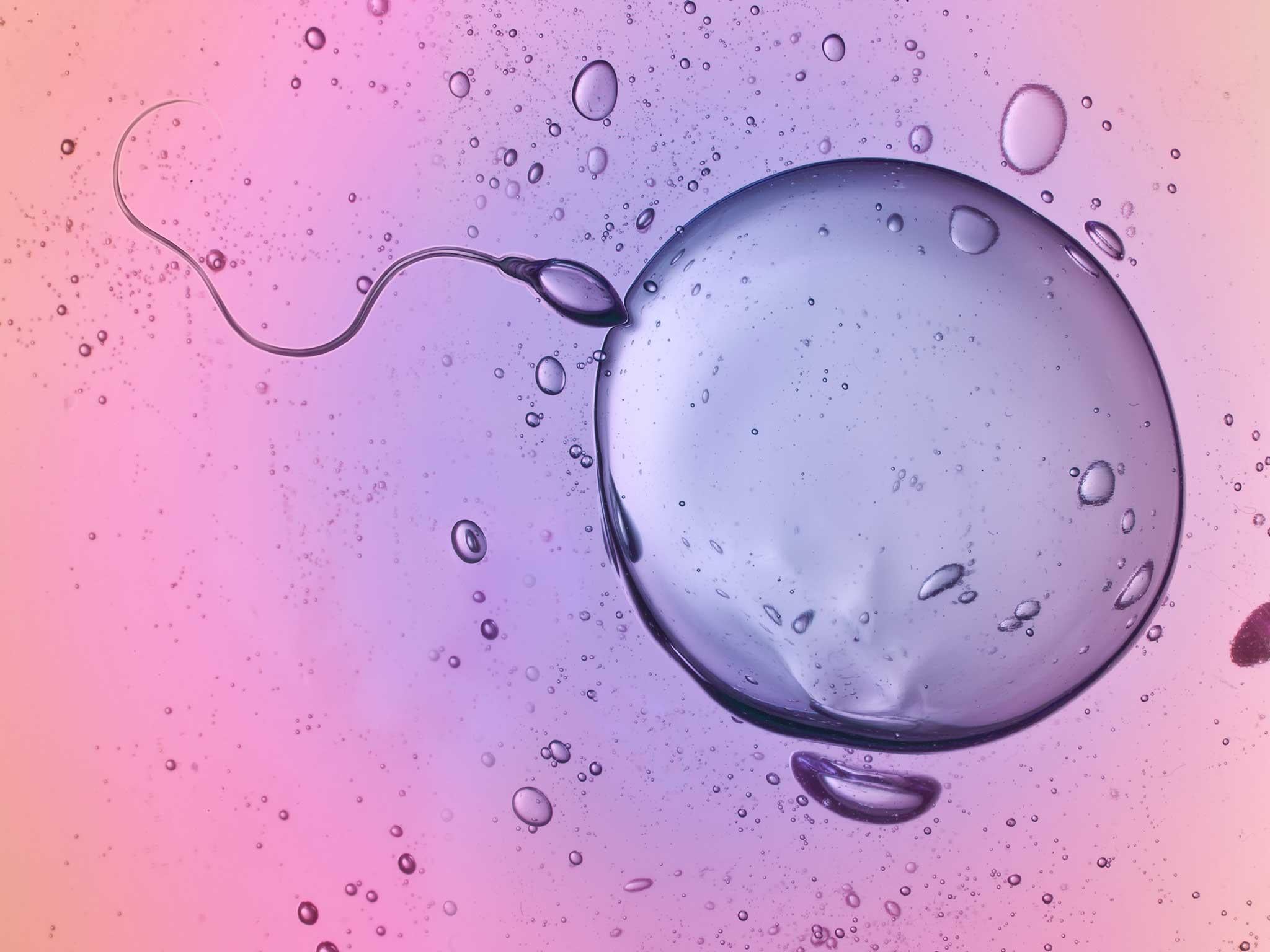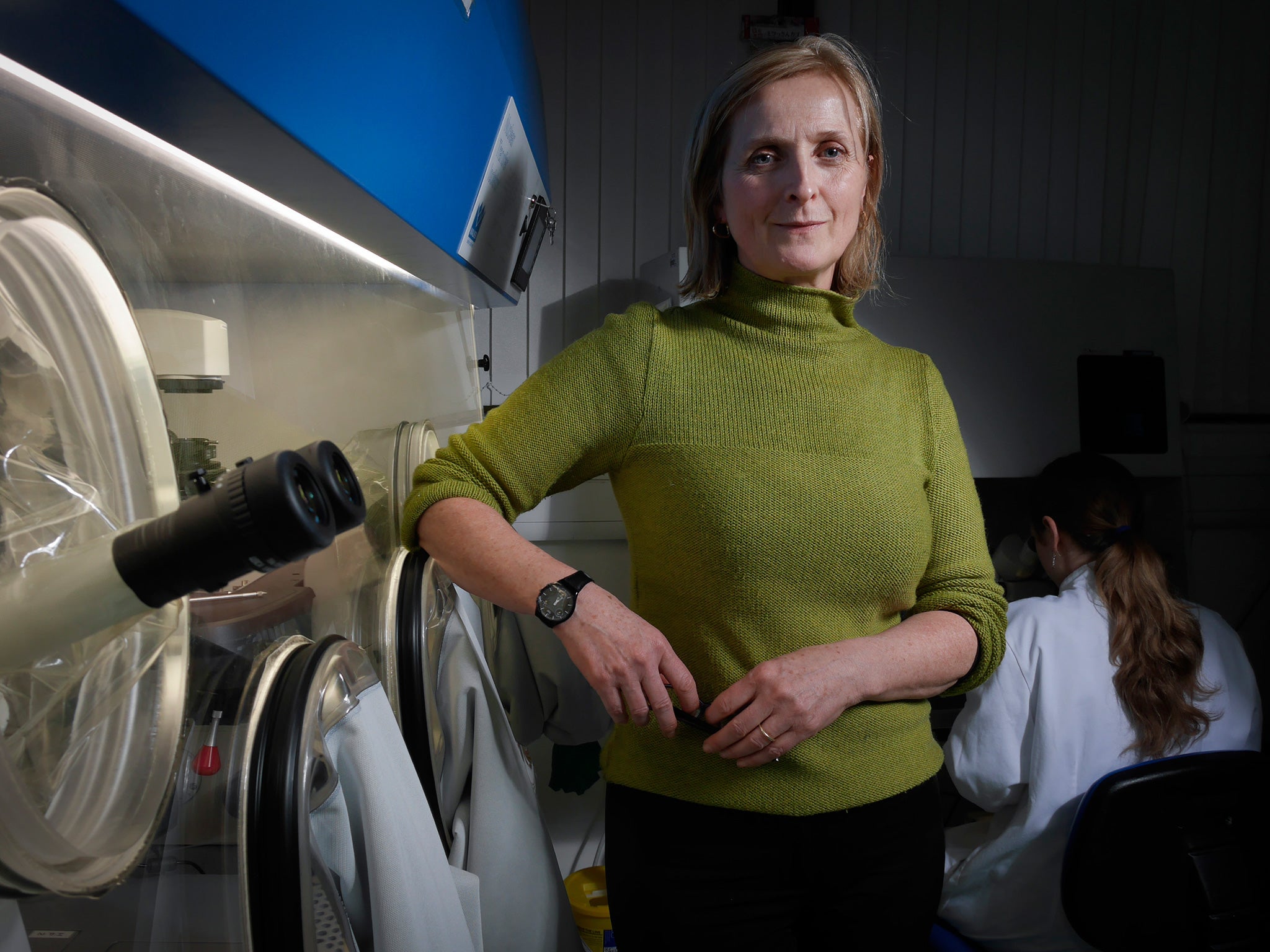The Independent's journalism is supported by our readers. When you purchase through links on our site, we may earn commission.
'Three-parent babies' could be a reality by the end of 2017 following breakthrough study
Mitochondrial replacement therapy means that babies inherit genes from a father and two mothers, by replacing faulty DNA in a woman's egg with healthy DNA of another

Your support helps us to tell the story
From reproductive rights to climate change to Big Tech, The Independent is on the ground when the story is developing. Whether it's investigating the financials of Elon Musk's pro-Trump PAC or producing our latest documentary, 'The A Word', which shines a light on the American women fighting for reproductive rights, we know how important it is to parse out the facts from the messaging.
At such a critical moment in US history, we need reporters on the ground. Your donation allows us to keep sending journalists to speak to both sides of the story.
The Independent is trusted by Americans across the entire political spectrum. And unlike many other quality news outlets, we choose not to lock Americans out of our reporting and analysis with paywalls. We believe quality journalism should be available to everyone, paid for by those who can afford it.
Your support makes all the difference."Three-parent babies" could be a reality by the end of next year following successful preclinical analysis, scientists have announced. The controversial procedure will now be referred to regulators to consider whether it can be licensed for use on women in the UK.
Mitochondrial replacement therapy replaces a small amount of a mother’s faulty DNA in her egg with healthy DNA from another woman. More commonly known as “three-parent” babies, the procedure means that babies inherit genes from a father and two mothers.
By removing the faulty DNA, scientists are able to reduce the chance of babies having mitochondrial diseases which are passed through the maternal line spreading from mother to child. They are rare but serious conditions which tend to emerge in childhood and can sometimes prove fatal before adulthood.
Previous studies have shown the process is technically feasible in abnormally fertilised human eggs, yet they have had limited capacity for onward development.
However, a new study reveals a new technique called “early pronuclear transfer” does not negatively affect onward development and will greatly reduce the level of faulty mitochondria in embryos. The study, which involved more than 500 eggs from 64 donor women, is published today in Nature journal.
Study lead author Professor Mary Herbert, from the Wellcome Trust Centre for Mitochondrial Research at Newcastle University, said: “Having overcome significant technical and biological challenges, we are optimistic that the technique we have developed will offer affected women the possibility of reducing the risk of transmitting mitochondrial DNA disease to their children.”
She added: “I would like to thank the women who donated eggs for this research. It would not have been possible to do this work without their help.”

Professor Doug Turnbull, director of the Centre for Mitochondrial Research and co-author of the paper, said: “This study using normal human eggs is a major advance in our work towards preventing transmission of mitochondrial DNA disease. The key message is that we have found no evidence the technique is unsafe. Embryos created by this technique have all the characteristics to lead to a pregnancy.”
He added: “Our studies on stem cells do express a cautionary note that it might not be 100 per cent efficient in preventing transmission, but for many women who carry these mutations the risk is far less than conceiving naturally.”
The research will now be considered by the Human Fertilisation and Embryology Authority (HFEA) to ascertain whether it may be granted a license, enabling the procedure to later become available to women as a treatment.
Professor Turnbull said it was too early to tell precisely when the procedure may become approved, but said he was hopeful the first babies could be created by the end of next year. He emphasised further work is dependent on approval by the embryology research regulator.
He said: “We’ve got a clear plan for how it would go forward. We would like to see this available throughout the UK. We’re discussing this with patients but we’re very much dependent on [approval by] the HFEA.”
Professor Turnbull added that there is enthusiasm among affected couples where women carry mitochondrial diseases to avail of the procedure. He said: “People are very positive about this technique. There are patients who would move forward with it.”
Liz Curtis, who lost her daughter Lily to mitochondrial disease when she was eight months old and now runs the Lily Foundation, which supports families affected by similar conditions, said: “It’s really amazing to think that soon parents could have the opportunity to extend their family using this technique, after this study found no safety issues, and researchers think there’s a good chance it can prevent mothers from passing on mitochondrial disease to their children.
“I lost my daughter Lily to mitochondrial disease nine years ago, and it’s too late for me to think about another baby, but for so many families this technique is their only chance of having a baby born free of mitochondrial disease.”
In February 2015, MPs voted to allow research into "three-parent babies", despite fierce opposition from religious bodies including the Catholic Church and the Church of England. Critics argue it unnecessarily medicalises children’s lives and conception. However, proponents argue it provides invaluable help to families who carry severe hereditary conditions, saving them unnecessary suffering and distress.
Join our commenting forum
Join thought-provoking conversations, follow other Independent readers and see their replies
Comments